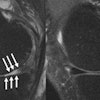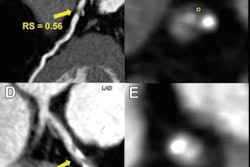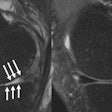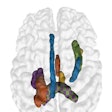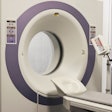
Combining CT results with artificial intelligence (AI) technology helps clinicians assess diabetic patients' coronary artery disease (CAD) risk, according to a study published January 23 in Cardiovascular Diabetology.
The findings could translate into better care for diabetic people, wrote a team led by Xiaolin Dong, PhD, of the Affiliated Hospital of Harbin Medical University in China.
"We have developed a more comprehensive model for diagnosing CAD in patients with type 2 diabetes mellitus that ... allows for a more proactive approach to prevent development and progression of CAD," the group noted.
Individuals with type 2 diabetes mellitus are vulnerable to CAD, the team noted, and the disease can develop without symptoms -- which prompts the need for early identification of it.
"[The] prevention of CAD in patients with type 2 diabetes mellitus is becoming an important health concern," it wrote. "Therefore, we ... need to develop new models to improve the early diagnosis of CAD in patients [with the condition] to actively prevent the development and progression of CAD."
Dong and colleagues sought to explore whether CT imaging findings (from both conventional CT and coronary CT angiography exams) and radiomic features of adipose tissue around the heart could help clinicians assess whether people with type 2 diabetes had developed CAD.
The researchers conducted a study that included 229 patients with diabetes but no history of heart disease who underwent noncontrast CT and coronary CT angiography exams between June 2020 and May 2022. The group collected clinical information about each person, CT image data, and information about 93 radiomic features of pericoronary adipose tissue (PCAT). It then constructed four models for predicting CAD in patients with type 2 diabetes:
- Model 1: Clinical factors
- Model 2: Clinical factors and imaging information
- Model 3: Clinical factors and radiomics scores
- Model 4: All of the above
The study found that model 2 and model 4 were most effective at identifying coronary artery disease, with AUC values of 0.93 and 0.929, respectively. Overall, model 2 ranked the best for diagnosing CAD in patients with type 2 diabetes.
| Performance of AI models for assessing CAD risk in diabetic patients | ||||
| Measure | Model 1 | Model 2 | Model 3 | Model 4 |
| AUC | 0.69 | 0.93 | 0.69 | 0.93 |
| Sensitivity | 58% | 88% | 58% | 88% |
| Specificity | 66% | 77% | 66% | 77% |
| Accuracy | 63% | 81% | 63% | 81% |
| Positive predictive value | 50% | 70% | 50% | 70% |
| Negative predictive value | 72% | 92% | 72% | 92% |
The study findings are encouraging when it comes to offering diabetic patients comprehensive care.
"Our findings may help clinicians and patients with type 2 diabetes mellitus monitor and rapidly identify CAD in real-time, provide timely diagnosis and treatment, and reduce future deaths due to cardiovascular disease," the authors concluded.



